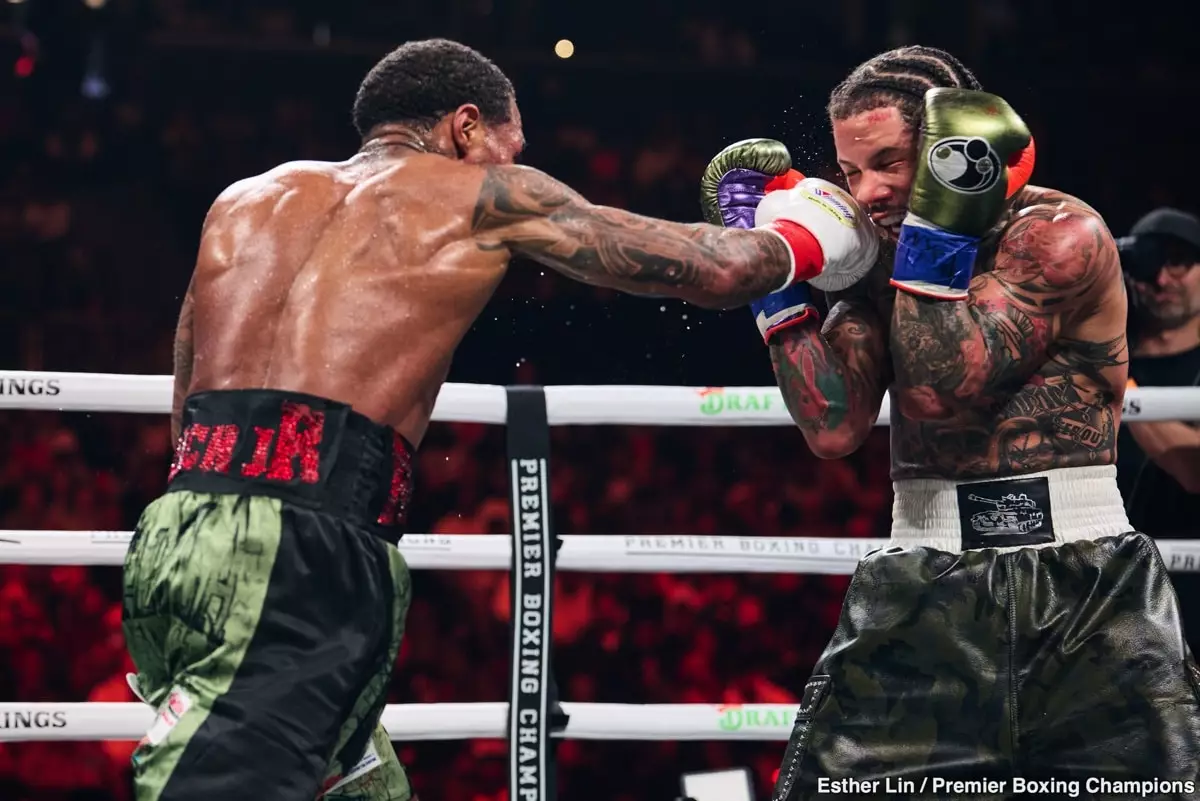In a recent bout against Lamont Roach, Gervonta “Tank” Davis took a knee in the ninth round to call for a timeout, citing an issue with grease obstructing his vision. This incident, which unfolded on March 1st at the Barclays Center in Brooklyn, has sparked controversy and raised questions about Davis’ mental fortitude and its implications for his legacy. Commentator Darren Barker has sharply critiqued this decision, arguing that it undermines the image of a fighter who is expected to battle through adversity. In a sport renowned for its grit, a fighter stopping the action to remedy a minor issue speaks volumes about one’s mindset in the ring.
The Role of the Referee and Knockdown Controversies
Another significant aspect of the bout was the referee’s decision to not award Roach a knockdown. As Davis took a knee after receiving a punch, this should have been recorded as a knockdown, subsequently altering the fight’s outcome. The current scoring saw it as a majority draw, preserving Davis’ unbeaten record but leaving many unsatisfied. The lack of punitive measures against Davis for taking a knee and the failure to recognize the knockdown have raised eyebrows. Such officiating decisions can change the trajectory of a fighter’s career, and in this instance, they certainly did. Whether intentional or not, this oversight benefited Davis in a moment when he appeared to be unraveling against Roach’s advances.
Psychological Ramifications
The decision to call for a timeout raises questions about Davis’ composure under pressure. Historically, fighters are taught to overcome distractions and fight through pain or diminishment, further adding to Barker’s critique that “this is the hurt business.” When Tank sought to halt the action, it hinted at a mental lapse when he needed to be most resolute. Observers were quick to note that his ability to cope with adversity has diminished since earlier stages in his career. The essence of boxing lies in resilience; thus, to show signs of vulnerability in critical moments can shake confidence and perceptions—not only from fans but also from opponents who may sense a chink in the armor.
The Shift in Fan Perception
This event has surely shifted how fans perceive Gervonta Davis. Prior to this fight, he was celebrated for his ferocity and ability to finish fights, boasting an impressive record with a significant number of knockouts. Post-fight, however, many feel a sense of disappointment. The expectation was not just for a victory but for a display of the bravado and fighting spirit that made him a fan favorite. Instead, what unfolded was a moment of uncertainty that could impact his marketability and legacy in the long term. Fans want to see champions rise from the ashes, not retreat for an easy fix.
Ultimately, the psychological and emotional aspects of Davis’s performance against Roach cannot be overstated. Moments like these in a fighter’s career can redefine their path, shaping future bouts and their standing in the boxing community. The idea of “next level” in boxing is about overcoming challenges head-on, and in this instance, Davis faltered, leaving many to wonder about his future impact in the sport.

